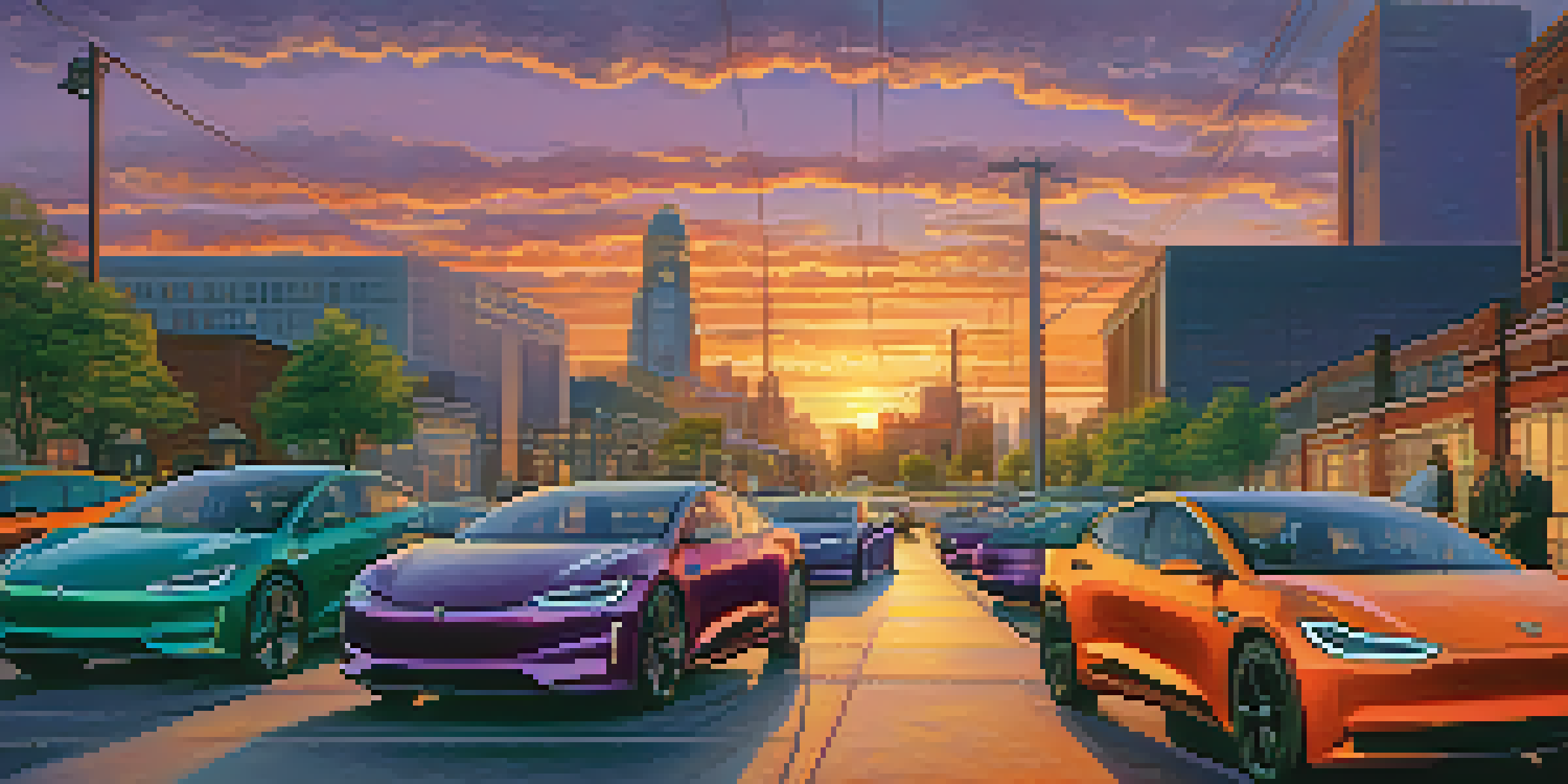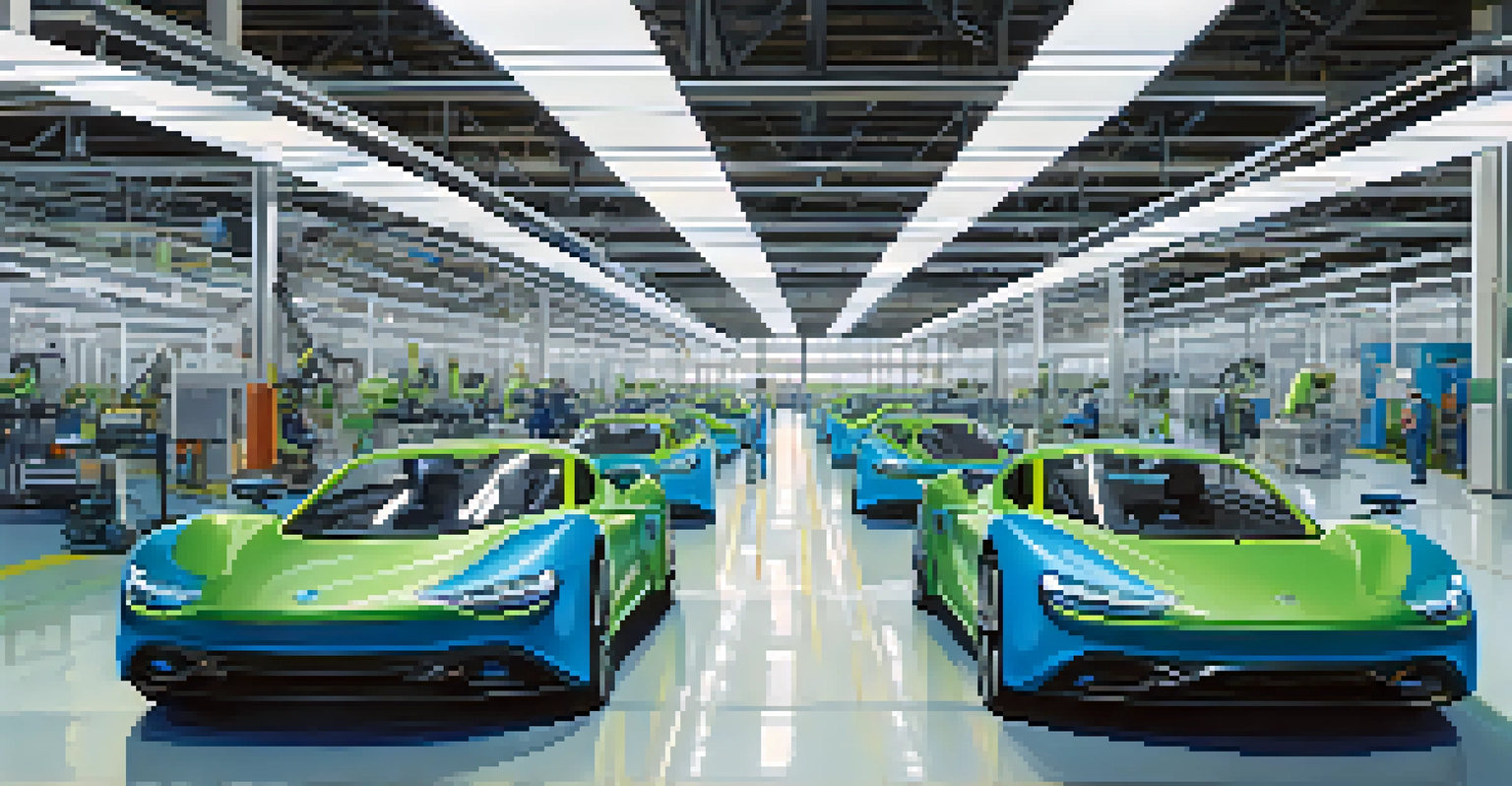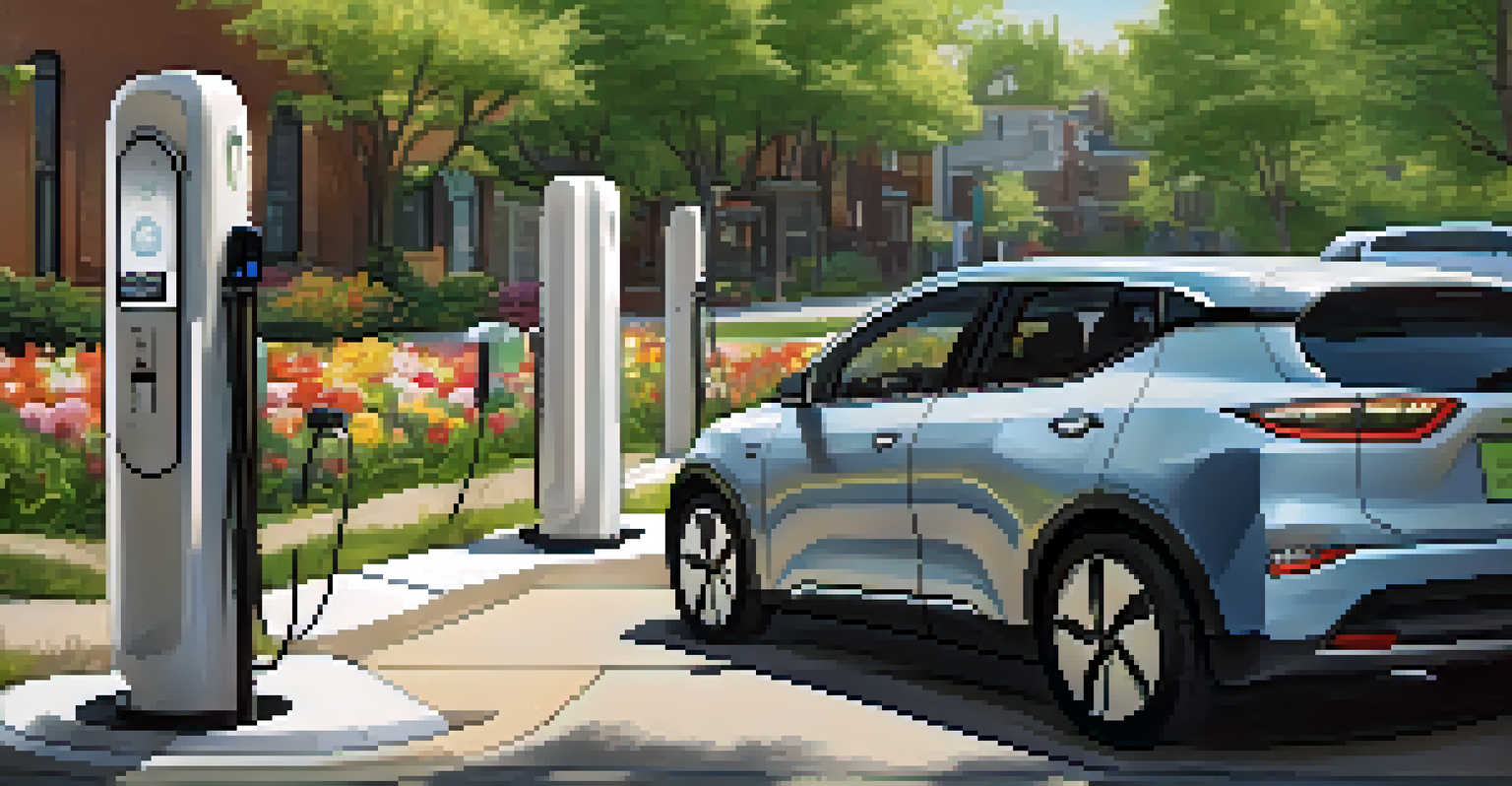Detroit’s Role in the Electric Vehicle Revolution Explained

Detroit: The Heartbeat of the Automotive Industry
Detroit has long been viewed as the birthplace of the American automobile, with a legacy that dates back to the early 20th century. It's the city where iconic brands like Ford and General Motors were born, paving the way for mass motorization. This rich history gives Detroit a unique position as it transitions into the electric vehicle (EV) era, blending tradition with innovation.
The electric car is not a dream of the future; it is a reality we are creating today.
As the automotive landscape shifts towards sustainability, Detroit is stepping up to the challenge. The city is not just a manufacturing hub; it’s becoming a center for EV research and development. This evolution is a natural progression for a city that has always thrived on automotive ingenuity.
Moreover, Detroit’s workforce is adapting to these changes, with many engineers and technicians re-skilling to meet the demands of electric technology. This transformation illustrates how the city is not just embracing the future but is actively shaping it.
The Rise of Electric Vehicles: A New Era
The electric vehicle market is on a significant upswing, driven by technological advancements and a global push for sustainability. Consumers are increasingly looking for greener alternatives, prompting automakers to innovate. Detroit is at the forefront of this shift, with major companies committing to electric models and zero-emission technologies.

In response to rising environmental concerns, both the state and federal governments are incentivizing the adoption of EVs. This includes tax breaks and grants for both manufacturers and consumers, making electric vehicles more accessible to the average driver. Detroit's automakers are leveraging these incentives to ramp up production and investment in EV infrastructure.
Detroit Leads in EV Innovation
The city is transforming from a traditional automotive hub to a center for electric vehicle research and development.
As a result, the city is seeing a surge in electric vehicle startups and investments. This dynamic environment is fostering a sense of community among innovators, allowing for collaboration that could redefine the automotive industry.
Key Players in Detroit's EV Revolution
Several major automakers are leading the charge in Detroit’s electric vehicle revolution. Companies like Ford and General Motors have unveiled ambitious plans to electrify their fleets, dedicating billions to research and development. These investments signal a commitment to not only compete in the EV market but to lead it.
Sustainability is no longer about doing less harm. It’s about doing more good.
Additionally, new players such as Rivian and Lucid Motors are emerging from Detroit, showcasing cutting-edge technology and design. Their presence adds to the competitive landscape, driving innovation and pushing traditional automakers to accelerate their EV strategies.
Collaboration between established companies and startups is crucial in this evolving market. By sharing resources and knowledge, these players are creating a robust environment that encourages groundbreaking ideas and advancements in electric vehicle technology.
Government Support and Policies Driving Change
The role of government in supporting Detroit’s EV revolution cannot be overstated. Various policies and regulations are being put in place to encourage the growth of the electric vehicle market. These include emission standards that push for cleaner alternatives and subsidies for manufacturers investing in EV technology.
Michigan's government has also introduced initiatives aimed at enhancing the state's infrastructure for electric vehicles, such as expanding charging stations. These efforts are crucial in making electric vehicles a more viable option for consumers, thus increasing adoption rates.
Government Support Fuels Growth
Policies and incentives from local and federal governments are essential in promoting the adoption of electric vehicles in Detroit.
Furthermore, local governments are partnering with automotive companies to create a favorable ecosystem for EV production. This collaborative approach ensures that Detroit remains a competitive player in the global electric vehicle market.
Challenges Facing Detroit's Electric Future
Despite the exciting opportunities, Detroit faces several challenges on its path to becoming a leader in the electric vehicle market. One significant hurdle is the transition of the existing workforce, which is largely trained in traditional automotive manufacturing. Upskilling and retraining these workers will be essential for a smooth transition.
Supply chain issues are another concern, particularly with the sourcing of critical materials needed for EV batteries, such as lithium and cobalt. Ensuring a stable supply of these materials is vital for the sustainability of electric vehicle production in Detroit.
Additionally, competition from established EV manufacturers and new entrants poses a challenge. Detroit must innovate continuously to maintain its edge and ensure its legacy in the automotive world is not only preserved but enhanced.
The Impact of Electric Vehicles on Local Economy
The transition to electric vehicles is set to significantly impact Detroit's local economy. Job creation in the EV sector is expected to increase as new factories and companies emerge to support this shift. This could lead to revitalization of neighborhoods and increased economic activity throughout the city.
Moreover, as more consumers opt for electric vehicles, there will be a ripple effect on local businesses, including those involved in charging infrastructure and maintenance services. This diversification can help to stabilize the economy and reduce reliance on traditional automotive manufacturing.
Challenges in Workforce Transition
Detroit faces hurdles in retraining its workforce and ensuring a stable supply chain for electric vehicle production.
Additionally, the rise of electric vehicles may attract talent and investment to the city, creating a vibrant ecosystem of innovation. Detroit can position itself as a hub for clean technology and sustainable practices, benefiting the community as a whole.
Looking Ahead: Detroit's EV Future
As we look to the future, Detroit's role in the electric vehicle revolution appears to be bright. With ongoing investments in technology and infrastructure, the city is poised to become a leader in the EV market. Automakers are setting ambitious goals for electrification, and the momentum is building.
Community engagement will also play a critical role in shaping the future of electric vehicles in Detroit. By involving local residents in the conversation about sustainability and innovation, the city can ensure that its developments align with the needs and desires of its citizens.

Ultimately, Detroit's journey in the electric vehicle revolution is just beginning. With a rich history, a dedicated workforce, and a commitment to innovation, the city is set to redefine its identity in the automotive landscape and embrace a cleaner, more sustainable future.